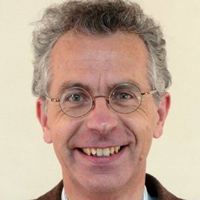“It is easier to put patients to sleep than to listen to their suffering”
Ethics expert Luc Olekhnovitch is grateful that France’s new end of life law excludes euthanasia, but hopes palliative care will continue to be developed.
PARIS · 23 MARCH 2015 · 17:05 CET

The French Assembly passed an end of life law which legalised “continous and permanent sedation” for terminal patients.
A big majority of the representatives (including the two main parties) voted in favour of the Leonetti-Claeys law (as it has been called) because it was a compromise between positions. It included for the first time the possibility for someone to ask to be put to “sleep until one dies”.
Evangelical Focus contacted Luc Olekhnovitch, president of the Commission d’Éthique Protestante Évangélique (Protestant Evangelical Ethics Comission) to find out what French believers think of the law.

Answer. The new law, which still has to be passed by the Senate, does not implement euthanasia but strengthens the patients’ rights to make their last will accomplished through the advance directives. It also gives the right to have a sedation which will help someone not to suffer so much at the end of their life.
The problem is the way the law will be applied. Will terminal sedation be used systematically? Will the new law help slip in hidden euthanasia? We have seen this phenomenon happen in the Netherlands. We will need to be very attentive to the decrees which will apply the law.
On the other hand, there is the risk to stop the development of palliative care. It is much easier to put someone to sleep than to listen to those who are suffering.
This law also changes the relationship between the doctor and the patient. The doctor becomes a supplier of services who has to comply with his contract, and not with the patient, in a therapeutic alliance against the illness. This poses a conscience problem for the doctor when a patient with cancer asks to stop a vital treatment and to be given terminal sedation, he is actually deciding his death.
It is true that if Vincent Lambert [a case that had caused much social debate in France] had written his advance directives, it would have saved his family much trouble in the judicial battle.
But there is an illusion to think that we can control everything, including our death. In fact, few people write their advance directives, because people do not like to think about their death!
Q. What do Evangelicals in France think about the law?
A. Evangelical leaders think that the worst has been avoided, which would have been a law that establishes euthanasia. There is a consensus among Evangelicals: palliative care should be further developed and should include spiritual care.
But the idea to have the right to individual autonomy and to control your own death has also come inside evangelical churches.
Q. Has there been a debate in the media and society about this law? Are there people who want to follow the path of Belgium, Holland or Switzerland in making it easy for people to have assisted suicide?
A. French public opinion, at least those who responded to the polls, is mainly in favour of euthanasia and assisted suicide. But people don’t see the social consequences: for those who are more vulnerable, it creates a duty to die.
Published in: Evangelical Focus - life & tech - “It is easier to put patients to sleep than to listen to their suffering”
